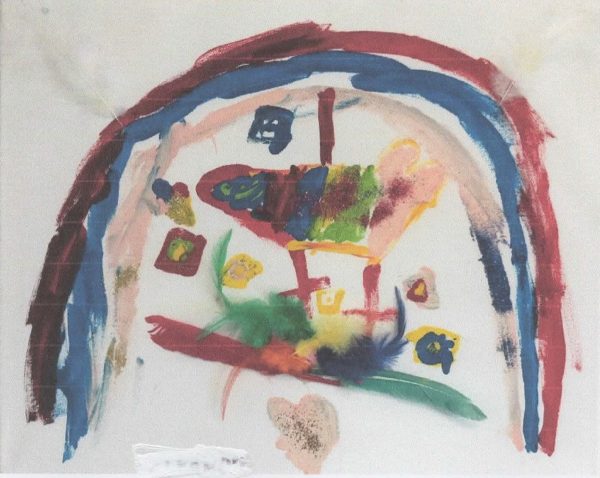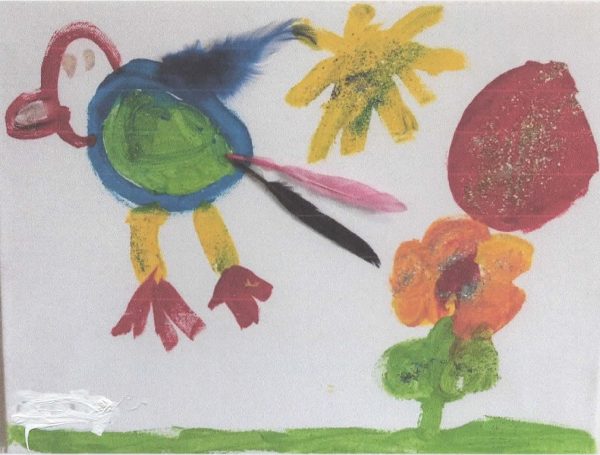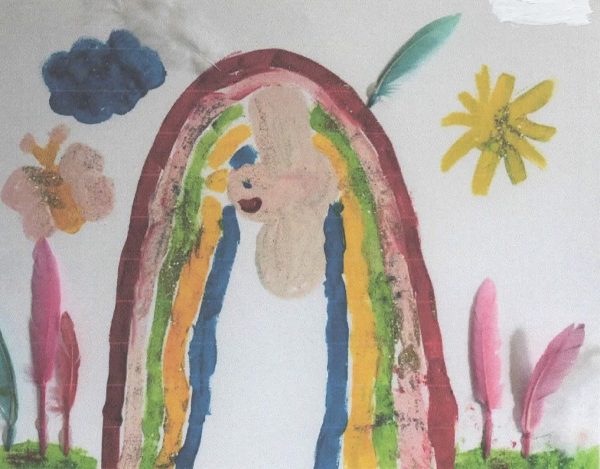by Hanna Vock
1 „She prefers to play by herself.“
2 „I guess he doesn’t really need friends.“
Sometimes it may be true, most of the time it is false.
In principle, gifted kindergarten children have the same social needs for playing together and for friendship as the other children. But inherent in these statements 1 and 2 is the assumption that the children behave this way because they don’t have these needs – a common fallacy. Unfortunately, there are many gifted adults who have adopted this fallacy over time and believe themselves that they can best manage on their own.
They have had too few good experiences: even as children, they were too often alone with their (good, creative) questions and thoughts, even when they were with others.
These statements from parents of young children are more accurate:
3 „Somehow she can’t do much with the other children.“
4 „He is always quickly disappointed when he thinks he has made a friend.“
Find the difference between statements 1 and 2 on the one hand and statements 3 and 4 on the other!
In 3 and 4, it is not the need that is negated, but the possibility of satisfying it.
The dilemma
I think it is very important to know and observe this difference when dealing with young gifted children, because quite different pedagogical actions are derived from it: We leave him/her alone, we keep challenging them to play with other children or: we help him/her to find children in the kindergarten with whom she/he can interact well, we involve her/him in challenging small group projects, etc. etc.
In chapter 4 of this manual you will find many practical examples of how this can be done.
Because the deeper understanding of this problem seems so important to us, the participants of the IHVO Certificate Courses are given the task to deal with a text that I consider very important and fundamental even 20 years after its publication. It is about excerpts from the book:
Barbara Schlichte-Hiersemenzel: Zu Entwicklungsschwierigkeiten hoch begabter Kinder und Jugendlicher in Wechselwirkung mit ihrer Umwelt 〈On Developmental Difficulties of Highly Gifted Children and Adolescents in Interaction with their Environment〉; published by the (German) Federal Ministry of Education and Research in 2001.
Here are a few brief key statements. They are taken from the copies that the participants received:
Schlichte-Hiersemenzel (2001a):
„If the child’s predispositions and urge to develop and the possibilities of the people around him differ too much, if they do not fit together very well, two basic human needs, the desire to develop and the desire to belong, can come into serious conflict with each other in the child and seriously disrupt his development. … The child’s self tries to reconcile both needs so that both are fulfilled in the best possible way. … There is thereby a dependence on the behaviour of the surrounding persons and from a very early age „a need for division of emotional and cognitive states in relation to the world“ (Dornes, Frühe Kindheit 〈Early Childhood〉, 1997). „Sharing“ here is to be understood as „experiencing with each other“. (p.10/11) End of quote. (Translation: Hanna Vock.)
Every very gifted person has to decide again and again at different times and in different situations whether they want to develop their giftedness unrestrained (even at the price of isolation) or whether they prefer to adapt to their environment and put the development of their giftedness on the back burner. Dealing with this dilemma is a lifelong process for highly gifted people, sometimes one tendency prevails, sometimes the other. It is important to note that even highly gifted kindergarten children are already struggling with this.
The child is in a dilemma when he or she has to choose between two possibilities, both of which feel uncomfortable and both of which (predictably to the knowledgeable observer) will lead to an unpleasant outcome: Either the child accepts feelings of loneliness and rejection or it neglects and denies its own abilities and interests.
The consequences are serious in both cases.
- Children who are rejected by other children because they are different – or who keep themselves away from other children because they are different – may become solitary, withdrawn, quiet in the group, or show off and show off their knowledge. All these behaviours can distance the child further from the other children and from building relationships. Many teachers are also sceptical of such children.
If these behaviours become entrenched, it can mean the development of (internal or external) cynicism in the distant future. This cynicism arises from socially non-embedded feelings of superiority and suggests the devaluation of others. - Many children, especially girls and more sensitive boys, permanently decide not to „stick out“ of the group they have ended up in. They want to belong and avoid making their cognitive superiority visible. This can solidify into a self-image in which the cognitive ambitions are suppressed and forgotten. Nevertheless, there are always situations in which they feel cognitively neglected.Their entire development can be decisively influenced by this denial; avoidance over a long period of time leads to the fact that challenges are (can) no longer be taken up because the practice and the self-confidence that grows out of it have been missed. An obvious example is that many very clever kindergarten teachers do not dare to present their good thoughts in front of a larger group. They just haven’t been able to practise it…
See also: Concealing Abilities and Interests
See: Confirm Intellectual Achievements of the children
But are we really faced with a dilemma here, i.e. an unsolvable dilemma?
If the gifted child has clever and empathetic „developmental helpers“ (parents, educators, teachers) then, at least theoretically, a third possibility opens up.
There is a way out of the dilemma.
But chance is rarely helpful.
Those who find themselves in a group (family of origin, kindergarten, friends, school, training, study, job, neighbourhood, old people’s home) in which there are other gifted or especially gifted people have better chances there than in a random mixture to feel comfortable in the social environment. This seems to be a crass assessment, but it is confirmed again and again.
See: Gaussian Distribution of Intelligence
Random mixing very rarely puts more than one gifted person in the same school class, work team or kindergarten group at the same time. Some circumstances are more favourable, others less so. The higher the intellectual demands at work, the more likely it is that gifted people will meet.
In kindergarten, for example, a highly gifted Syrian refugee child may find himself in a kindergarten group where all the other children will later attend a secondary school and some will not graduate from there. (The German Hauptschule is attended by children who are unable to gain admission to a Gymnasium.)
See on this: Giftedness Is Not a Happy Problem.
A good approach to solving the dilemma is to install Integrative Focus Kindergartens for the Advancement of Gifted Pre-School Children. Here, the gifted child also meets a random mixture as far as intelligence is concerned. However, according to the concept, there are also a few other gifted children in the group, and there are teachers who have undergone additional training in this area.
Elites
At this point, the accusation often appears that these are elitist ideas.
Therefore, I want to make it clear once again:
Gifted people are not better
or more valuable people,
they are just particularly intelligent.
I would like to see many highly gifted people reach influential positions in order to find intelligent solutions to problems – often this is not even apparent in the current reality.
Of course, it can’t just be about the level of intelligence – moral integrity and respect for all living beings and also inanimate nature is what I would wish a fairy godmother to add as 1st and 2nd wishes when it comes to occupying influential positions. But in 3rd place would come the wish for high intelligence and especially for the ability to think systemically, creatively and with foresight.
If such people represented the scientific, economic, educational (!), and political elites, I would not be so worried about the future of my grandchildren.
Self-determination
Gifted people who grow up in contact with other gifted people at an early age can – with the friendly support of their „developmental helpers“ – realise early on that they can exert an ever greater influence on the composition of their social environment as they grow older. They can selectively look for friends, consciously aim for a demanding grammar school (in German: Gymnasium) and then later for a demanding profession. They can also give intelligence a high priority for their long-term choice of partner.
Again and again I experience that people with sufficient intellectually satisfying contacts feel little urge to feel haughty; on the contrary, they can deal all the more calmly and respectfully even with less intelligent people, for example with neighbours or colleagues. But if such satisfying contacts are lacking, feelings of superiority can become toxic.
Supporting young children
Young children do not have this opportunity to consciously shape their environment. In order for young children to find a way out of the dilemma early on, i.e. to experience appropriate social contacts and adequate development, they need empathetic developmental helpers.
In addition to parents, these are kindergarten teachers who support them at an early age, because the sad lurching in the dilemma leads the children onto unpleasant paths and to unhealthy behaviour, self-views and self-convictions.
Some gifted children are lucky
There are children who can follow a privileged developmental path; because one or even more of the following conditions apply to their lives:
-
- They have parents, or at least one parent, who is also highly gifted and also educationally talented and interested. They are therefore understood, supported and encouraged at an early age in the family. (I have had the opportunity to meet many of these parents during my parent counselling sessions.)
- In the kindergarten, the child meets one or even more teachers who recognise the child without prejudice, deal with it intelligently, address it on its cognitive level and react with fascination rather than deterrence or uncertainty. With great luck, the kindergarten teachers will even be familiar with the advancement of gifted kindergarten children.
- The child may experience something similar in its primary and secondary school. There, too, it will meet ambitious and inspiring teachers and at least a few classmates who are just as gifted.
Even if all three of these conditions are met – which is like hitting the lottery – there is no guarantee for a happy and successful development, there are too many other conditions and stumbling blocks that play a role (see: Personal Competences).
But:
These prerequisites are,
even taken individually,
very important factors!
In the luckiest case, the spiral of development turns steadily upwards: The gifted find mentors and also professional fields of activity that correspond to their intellectual potential.
And sometimes such adult „lucky children“ cannot understand all the „fuss“ about early advancement (already in kindergarten!). They see the world a bit like the French queen Marie Antoinette in the 18th century, who is said to have said about the starving poor in her kingdom: If they have no bread, let them eat brioche (sweet French pastry)!
Unfortunately, the reality for many gifted children is that they do not go through any of the life stages listed above with understanding and appropriate support. This makes the insights (and then also the practical communicative skills) of kindergarten teachers all the more valuable.
**********
As a representative of many good thoughts on this complex, the following are excerpts from the assignments written by course participants during their time on the IHVO Certificate Course.
This is what Heike Brandt wrote:
In the article published by the Federal Ministry (by Hiersemenzel), the psychological distress of gifted children is described, which can arise through the encounter with the environment, if the environment follows a uniform pattern and is not concerned with individual support.
Due to their higher perceptive faculty, their faster learning speed and due to their more complex and deeper thought processes, gifted children have difficulties finding like-minded people in their immediate environment (kindergarten and school) with whom they can exchange their thoughts and ideas, by whom these can be understood and mirrored.
The author Hiersemenzel describes that gifted children are conspicuous by their joy of communication and their more complex trains of thought and are often perceived as disruptive by classmates and teachers who cannot comprehend their trains of thought. Being called „nerds“ (or even bulling) or disciplinary measures often exclude the gifted from the community.
Highly gifted people also have the need to belong to a group. This creates a struggle between two basic needs, on the one hand the urge to develop and on the other hand the sense of belonging. (I want to be like the others.) Often they adapt in favour of belonging, do not want to stand out, atrophy in the intellectual field (sometimes even switch off this part of the personality), already acquired abilities are denied or bad grades are deliberately written.
Thus a mental predicament arises due to constant underchallenge, boredom, dissimulation of the personality and great self-control. This process takes a lot of energy. The consequences are often aggression, loss of joie de vivre, physical breakdowns, apathy, loss of interest in activities that were otherwise enjoyable after the school or kindergarten day, and even suicidal thoughts.
The author Hiersemenzel describes that gifted children feel their time at school, which they have to attend for legal reasons, as boring, as unused time or even as a prison.
Information from a parent interview:
The processes described in the article were confirmed to me by a father in a conversation when we happened to talk about the school situation of his son, who is now attending second grade. He had almost lost interest in school and was withdrawing more and more. He had reduced his ability to calculate up to 100 in his head and was doing mental arithmetic up to 10.
When the parents shared their observations with the teacher, she described the pupil as unfocused and restless, not showing his maths skills in her classroom. She therefore said that he should first acquire the basic skills.
The father then gave his son a difficult task to calculate at home, which he solved in a concentrated and calm manner.
My thoughts for practical work in kindergarten:
The article deepened the insights I had already heard in the training and now spoke to me on an emotional level, as it contains many examples of the situation of gifted children. For my pedagogical work, it has once again become clear to me that I can also better integrate the skills of the gifted children into the group by letting results from „extra tasks“ flow back into the group.
In this way, the gifted child is affirmed and experiences belonging. I also find it important that the kindergarten teacher praises good ideas in front of the group or one-on-one, shows the group the skills of the gifted child and explains their benefit for the group.
***********
Renate Ashraf wrote:
I find Mrs. Schlichte-Hiersemenzel’s explanations and case studies significant and convincing. Her claims are absolutely justified.
The two fundamental needs of children and adolescents are, on the one hand, that of self-development and, on the other, that of belonging. In the case of gifted children, the need for intellectual development is naturally particularly strong. In kindergarten and school, this need is hardly met, as the staff tends to orient itself towards the majority, towards children with average intelligence. Teachers also lack the necessary training for dealing with the highly gifted.
Furthermore, the gifted child makes himself unpopular with kindergarten teachers, school teachers and classmates with its intellectual superiority and thirst for knowledge. It is often called a „nerd“ and labelled an outsider. This in turn affects its strong need to belong. It would like to belong to a group in a „normal“ way (like any other child). And only as an equal and respected member of the group would it find the security in life that it needs with its still unstable personality.
As can be seen very clearly in Mrs. Hiersemenzel’s text, the two fundamental needs of the gifted child, the desire to develop and the desire to belong, are in conflict with each other, which at first sight seems insoluble. I find this conflict so tragic, because no matter what the individual chooses, it has negative consequences for him or her. If the gifted child chooses self-development, it means renouncing belonging and vice versa.
The gifted child senses that he or she has to make a choice. Since social acceptance is usually more important than intellectual gain, they often cut back on self-development to a large extent. This has serious consequences: Resignation and dislike of school spread, self-esteem and joie de vivre are clearly reduced, depressive moods occur and psychosomatic complaints are possible („deformation of the personality“). Thus, the gifted child often pays a high price for gaining a sense of belonging.
The onset of resignation is particularly unfortunate in the kindergarten years because it is so formative, and in the late latency period when a pupil’s joy of learning and willingness to perform are normally at their highest (5th/6th grade). For me, this circumstance is actually the reason why I am doing this training. I want to clarify and explain this conflict to my colleagues (and many other teachers as well). Once you understand it, you will approach these children in a completely different way.







